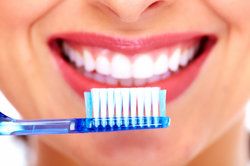The Causes and Treatment of Bad Breath
 Bad breath is a common problem that most people can admit to having once in a while. While most instances are a temporary inconvenience, recurring cases may be indicative of another problem.
Bad breath is a common problem that most people can admit to having once in a while. While most instances are a temporary inconvenience, recurring cases may be indicative of another problem.
If you are suffering from an isolated or persistent case of bad breath, consider the common sources of this problem, as listed below. Once understood, you can seek the appropriate treatment to address your breath as well as any related health risks.
Bad Breath from Bacteria
Also called halitosis, bad breath is typically caused by a build-up of bacteria in the mouth. These bacteria release odors as they continue to grow on the tongue, teeth, and gums, negatively affecting breath. Therefore, any habits or conditions that promote the growth of these bacteria are also likely to increase the prevalence of halitosis, including:
- Poor hygiene: Inconsistent or lackluster hygienic habits are a primary reason for bad breath. When bacteria are not brushed away, they form colonies of plaque along teeth and gums, which are also responsible for the beginnings of tooth decay and gum disease.
- Gum disease: Gingivitis is one of the most common causes of chronic bad breath, even after brushing. Additional signs of gum disease include gums that are reddened, swollen, sensitive, receding, or prone to bleeding after irritation. If left untreated, gum disease can lead to tooth decay, loosened teeth and gums, and periodontitis.
- Dry mouth: One of saliva’s key functions is to cleanse teeth and gums throughout the day, washing away bacteria and aiding in dental hygiene. Patients with dry mouth are therefore more likely to retain plaque or develop gum disease, thereby leading to bad breath. The common occurrence of “morning breath” in most people is a result of this, as saliva production is reduced while asleep.
Bad Breath from Diet or Illness
Not all cases of halitosis are bacterial. As may be obvious after a meal of garlic, onions, or a similarly poignant food, diet can also play a role in one’s breath. However, odors from food are not always retained in the mouth itself. After eating, food is broken down and absorbed into the bloodstream, some of which is then absorbed into the lungs, leading to extended bad breath.
Believe it or not, bad breath can also be caused by what you don’t eat. When the body does not receive enough carbohydrates, it begins to break down fat already stored within the body. A byproduct of this process is the release of odorous ketone chemicals, which can travel up and out the mouth.
Finally, some illnesses also include bad breath as a symptom. Acid reflux and diabetes are some of the more common possibilities, while liver disease, kidney disease, fungal infections, and respiratory diseases are also plausible.
Treating Bad Breath
For temporary cases of bad breath caused by bacteria in the mouth, the first course of action should be brushing and flossing. Normally, brushing twice daily with toothpaste and flossing at least once a day should be enough to keep your breath relatively fresh. If this does not work, or you notice symptoms of gum disease, brush after every meal and use an ADA approved mouthwash. Drinking water with meals will also help eliminate bacteria, especially for patients already suffering from dry mouth.
If you suspect your bad breath is caused by disease or illness, the underlying problem should be addressed. Visit your doctor or cosmetic dentist, depending on the nature of illness, for a professional assessment of your breath’s origin. For advanced cases of gingivitis, a deep cleaning or pocket reduction surgery may be recommended to treat infection. For many patients, a simple professional cleaning is enough to control plaque and gum disease.
Come In for a Check-up
Whatever may be causing your bad breath, the early detection of dental problems is integral to avoiding future complications and the need for restorations, such as fillings or dental crowns. Let your breath be a positive reflection of your good dental health: contact our office today to schedule an appointment with Dr. Tanner.


